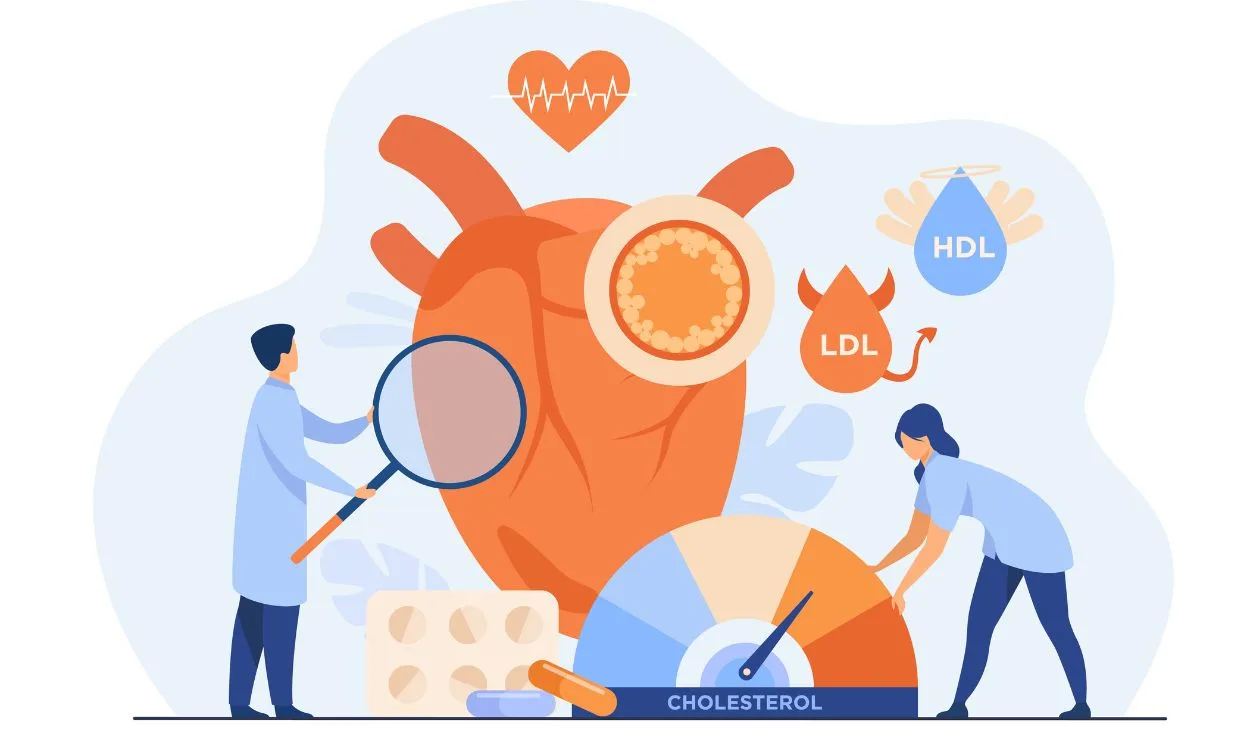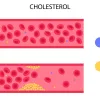How do LDL and HDL cholesterol impact heart health?
Understanding Cholesterol
Cholesterol is a waxy substance that is found in the cells of our body. It is essential for the production of hormones, vitamin D, and bile acids that help in digestion. However, when the levels of cholesterol in the blood become imbalanced, it can lead to various health problems, especially cardiovascular diseases.
LDL Cholesterol: The “Bad” Cholesterol
Low-density lipoprotein (LDL) cholesterol is often referred to as the “bad” cholesterol. This is because high levels of LDL cholesterol can lead to the accumulation of plaque in the arteries, a condition known as atherosclerosis. The plaque buildup narrows the arteries and restricts blood flow to the heart, increasing the risk of heart disease and stroke.
Factors that contribute to high LDL cholesterol levels include an unhealthy diet rich in saturated and trans fats, lack of physical activity, smoking, and certain medical conditions such as diabetes and obesity.
HDL Cholesterol: The “Good” Cholesterol
High-density lipoprotein (HDL) cholesterol is often referred to as the “good” cholesterol. It helps remove LDL cholesterol from the bloodstream and transports it back to the liver, where it is broken down and eliminated from the body. Higher levels of HDL cholesterol are associated with a reduced risk of heart disease.
Regular exercise, a healthy diet high in fruits, vegetables, whole grains, and healthy fats, and avoiding smoking and excessive alcohol consumption can help increase HDL cholesterol levels.
The Impact on Heart Health
Having high levels of LDL cholesterol and low levels of HDL cholesterol can significantly increase the risk of developing heart disease. The plaques that form in the arteries due to high LDL cholesterol can rupture, leading to the formation of blood clots that can block blood flow to the heart. This can result in a heart attack or angina (chest pain).
On the other hand, HDL cholesterol works to prevent the formation of plaque by removing excess LDL cholesterol from the bloodstream. It also has antioxidant and anti-inflammatory properties that help protect the blood vessels and reduce the risk of cardiovascular diseases.
Managing Cholesterol Levels
Maintaining healthy cholesterol levels is crucial for heart health. Here are some lifestyle changes that can help manage LDL and HDL cholesterol levels:
1. Healthy Diet
- Include foods rich in soluble fiber such as oats, barley, legumes, and fruits.
- Choose healthy fats found in olive oil, avocados, nuts, and fatty fish.
- Limit saturated and trans fats found in red meat, full-fat dairy products, and processed foods.
- Avoid sugary foods and beverages.
2. Regular Exercise
- Engage in moderate-intensity aerobic activities such as brisk walking, cycling, or swimming for at least 150 minutes per week.
- Incorporate strength training exercises to build muscle mass.
3. Maintain a Healthy Weight
- Losing excess weight can help improve cholesterol levels.
4. Quit Smoking
- Smoking damages the blood vessels and lowers HDL cholesterol levels.
5. Limit Alcohol Consumption
- Moderate alcohol consumption is recommended, which means up to one drink per day for women and up to two drinks per day for men.
6. Medication
- In some cases, lifestyle changes may not be sufficient, and medication may be prescribed to manage cholesterol levels. It is important to consult a healthcare professional for proper evaluation and guidance.
Fitpaa: Your Partner in Achieving Heart Health
If you are looking for a comprehensive and personalized approach to managing your cholesterol levels and improving heart health, Fitpaa can be your ideal partner. Fitpaa offers an end-to-end AI-driven metabolism monitoring and management technology that can help you achieve your health and fitness goals, including maintaining healthy cholesterol levels.
With the help of Fitpaa’s state-of-the-art research in Lifestyle Medicine and Behavioral Therapy, you can strengthen your organ systems and optimize your metabolism. Fitpaa’s expert team of fitness coaches, nutritionists, and doctors can guide you in creating a personalized Fitpaa Capsule based on your metabolism, health goals, lifestyle, and eating habits.
The Fitpaa app provides real-time guidance, habit-building techniques, and a virtual workout trainer to ensure you follow your Fitpaa Capsule with precision. Regular progress reviews by the Fitpaa team ensure that your plan is adjusted as needed to help you achieve your goals.
So, if you are ready to take control of your heart health and overall well-being, download the Fitpaa app now and experience the joy of getting fit and excelling in life.
Remember, your health is your wealth, and with Fitpaa, you can achieve your health and fitness goals with guaranteed results!









